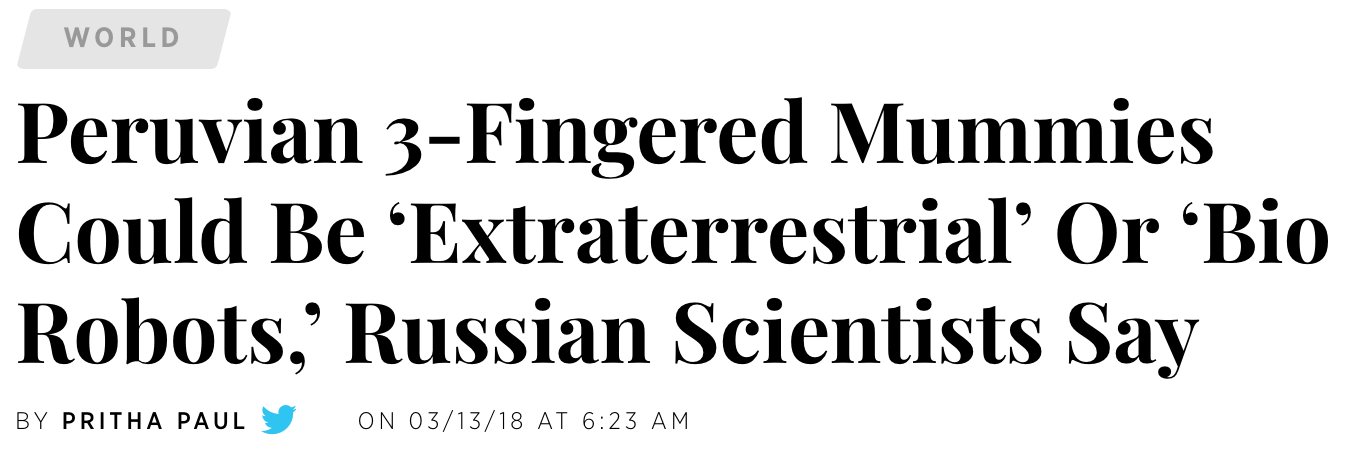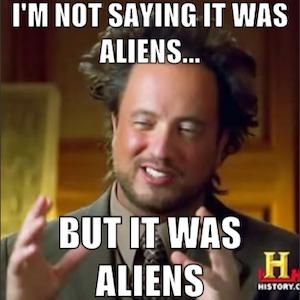Of all the ridiculous claims made in the popular science press, one of the biggest is that we have discovered the possibility of alien life on some remote exoplanet.
The story usually goes like this: Astronomers find a star located many light-years away that hosts multiple planets. One of those planets is located in the "Goldilocks Zone," the habitable region around a star. Upon closer examination, that planet appears to have gases in its atmosphere that might indicate life. The authors conclude that given the sheer number of these types of exoplanets, life could be everywhere in the universe.
Oh, that's just too good to resist. So, studies like that tend to lead to headlines like this:

The unexciting reality is that most exoplanets probably do not have life on them, but even if they do, they're too far away for us to unambiguously confirm it. Besides, if life on other planets resembles the evolution of life on our planet, then the most likely type of life we would encounter is microbial. That's a real bummer because microbes can't talk.
These statistical probabilities -- that nearby extraterrestrial life is unlikely and that the most common type of extraterrestrial life likely will be microbial -- essentially guarantees that aliens have never visited Earth. Yet, that doesn't stop the press from claiming that a three-fingered mummy in Peru is an alien.
No, the Three-Fingered Mummy in Peru Is Not an Alien
The London Evening Standard ran this headline:

The International Business Times (which is owned by Newsweek, so this makes more sense) ran this:

Extraterrestrial or bio-robots? At least IBT gave itself some wiggle room.
To their credit, some of the articles that covered this "story" (such as it is) reported that the "scientist" (such as he is) is controversial and that critics say the mummies are frauds.
Truthfully, no respectable news outlet should have covered this. The head researcher is Konstantin Korotkov, a well-known crank who once claimed to have photographed a soul leaving a human body. He is a hoaxer, so this is a non-story, just like "Crazy Person on Street Keeps Yelling Crazy Things" is also a non-story. Korotkov should have been ignored. But he wasn't. Why?
Fake Aliens and Fake News: It's Always the Russians
The timeline seems to go like this:
The story began in Russia's state-controlled media. On March 5th, Mir 24 picked up the story, which was then followed by Sputnik on March 10th. Then, the mother of all Russian propaganda outlets, RT, ran the story early on March 13th. From there, the story went "mainstream" in the Western press.
Stop and think about that for a second. A complete hoax was circulated among Russian state-controlled media as legitimate news, and the Western media fell for it. Sure, some of them provided "caveats," but the point is that Russian propaganda has so infiltrated the public discourse that it appears regularly in mainstream Western media outlets. That's shocking.
Why is Russia doing this? It appears that the Kremlin is waging a war on truth. (There is a book that discusses this by Peter Pomerantsev called Nothing Is True and Everything Is Possible: The Surreal Heart of the New Russia.) By purposefully muddying the distinction between fact and fiction, the Kremlin can further its own agenda.
That's also why propaganda outlets like Sputnik and RT are vehemently opposed to GMOs and fracking. Undermining America's agriculture and energy sectors benefits Russia's economy.
Before Western journalists, who seem only to care about boosting traffic, copy-and-paste these clickbait stories from their Russian counterparts, they might want to first ask, "Is it true?" and, "Whom does the story benefit?" You know... the sorts of questions journalists are supposed to ask.




